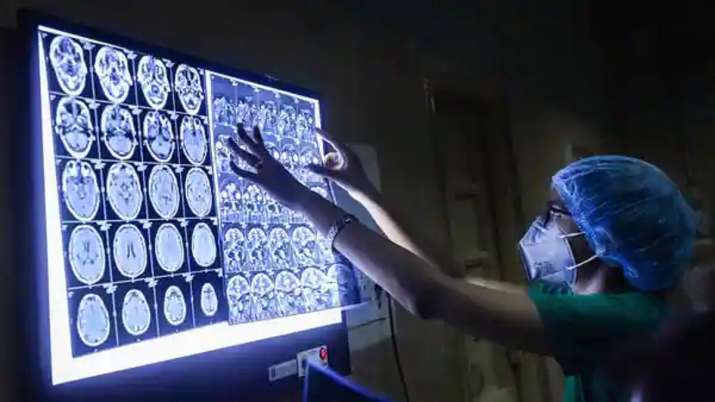A “rare” case of mucormycosis has been reported in a 49-year-old male patient at a leading private hospital in Delhi after his recovery from dengue, said doctors on Saturday.
Amid the huge surge in the number of dengue cases in the national capital this rare case reported at the Apollo hospital in south Delhi. Nine deaths and a total of 2,708 dengue cases have been reported this season till November 6 according to a civic report released on vector-borne disease on Monday, which is the highest count since 2017 for the same time.
In the first week of November over 1,170 cases were recorded.
In a statement issued on Saturday, the Apollo hospital said, “A 49-year-old male has been reported to be one the rare cases of post-dengue mucormycosis by a team of doctors at the hospital.”
According to the statement, after 15 days of his recovery from the vector-borne disease, the patient came to the hospital complaining about a sudden loss of vision in one eye.
A large number of cases of the “black fungus” were reported throughout the country after the coronavirus infection was detected in patients suffering from chronic diabetes during the second wave of the COVID-19 pandemic.
In people whose immunity has got lowered due to the Covid-19 pandemic or diabetes, kidney disease, liver or cardiac disorders, age-related issues or those on medication for auto-immune diseases like rheumatoid arthritis Mucormycosis or the “black fungus” is more common.
Mucormycosis post dengue is a new observation and hence, patients should remain extremely active about their health who have a recent history of dengue and must consult a healthcare expert immediately after noticing any new symptoms, said doctors at the Apollo hospital.
Dr Suresh Singh Naruka, senior consultant (ENT), Indraprastha Apollo Hospitals, who is leading the treatment of the patient, said, “A rare case of black fungus (mucormycosis) came into our view when the patient came to the hospital, reporting a sudden loss of vision in one eye post dengue fever. It is rarest of the rare to see mucormycosis as a post-recovery complication in a dengue patient as this condition is generally seen in people who have a history of diabetes, compromised immunity and various other infections.”
“It is a deadly infection caused by a group of fungus called mucor. This fungus invades into the healthy tissues of the nose, sinuses, eyes and brain so rapidly that any delay in diagnosis and management can lead to adverse long-term complications,” he added.
Dengue is accompanied with high fever and therefore, doctors feel that people might suspect that they have contracted coronavirus infection. The dengue mosquito bugs breed in clear, standing water, while those of malaria thrive even in dirty water.
Dr Atul Ahuja, senior consultant (ENT and head and neck surgery) at the hospital, said, “Diagnosing and managing a case of rhino-orbital (involving nose and eye) mucormycosis in a patient who has just recovered from dengue fever is very important, as even after best treatment, patients of mucormycosis can lose their eyesight permanently and in a state of an aggressive infection, removal of eye becomes necessary for preventing any further spread of infection.”
Dr Nishant Rana, the registrar at the facility, said, “Before coming to the hospital, the patient had an episode of nasal bleeding as a complication owing to dengue 15 days prior to his recovery, wherein he noted a low count of platelets with no transfusion history. Mucormycosis in his case is a resultant factor of compromised immunity owing to dengue.”

